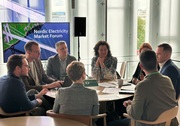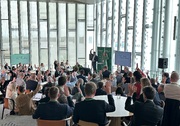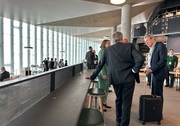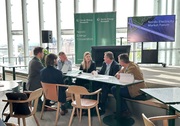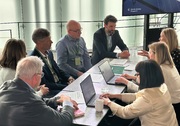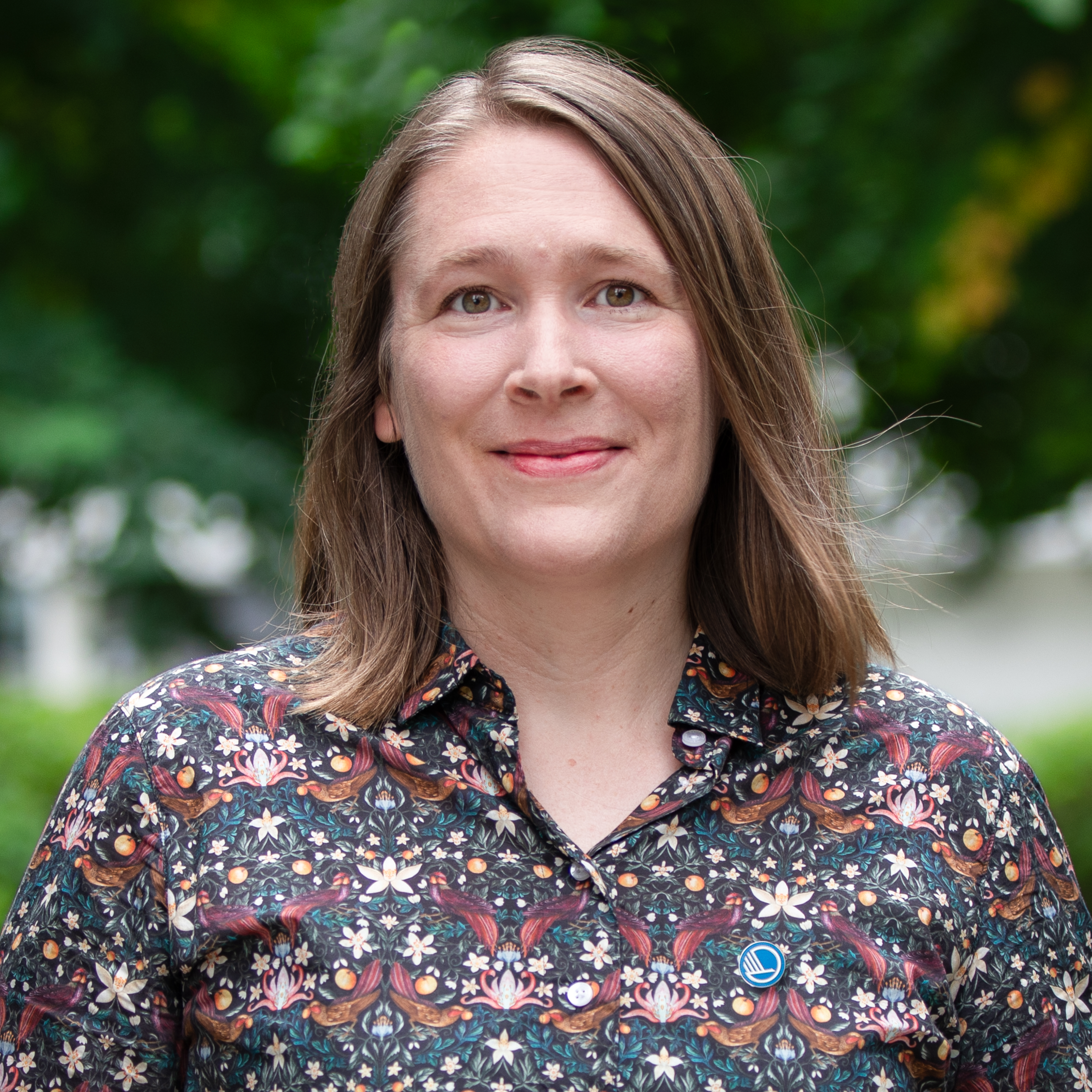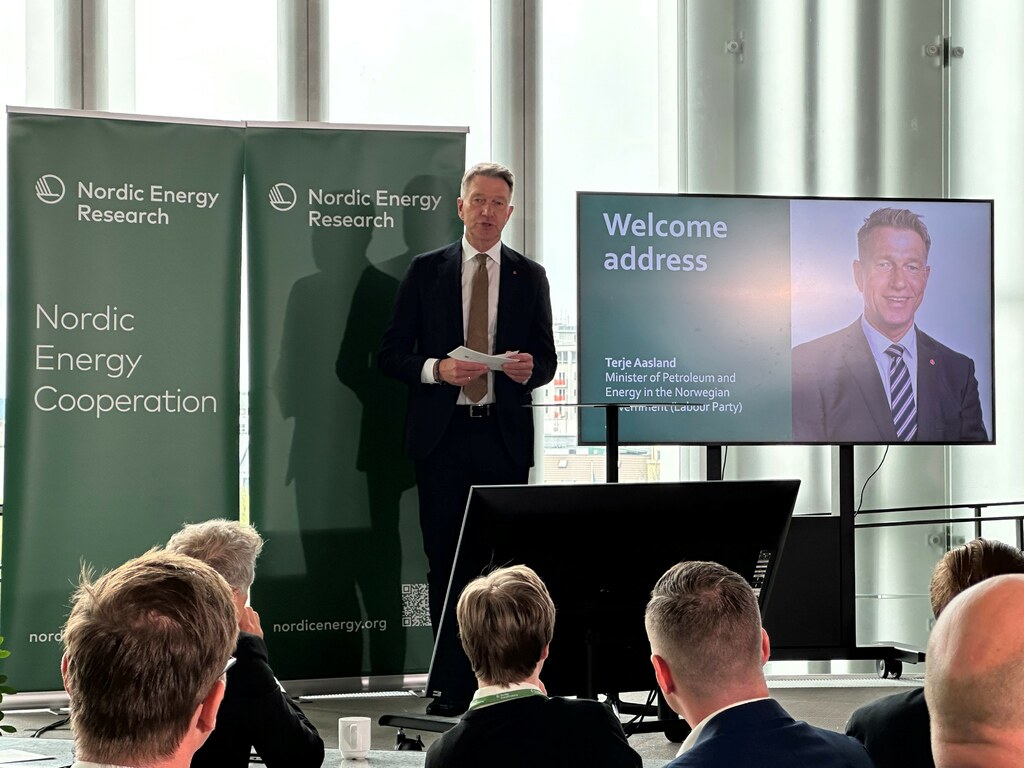
Nordic competitiveness in focus at the Nordic Electricity Market Forum 2025
On 5-6 May, nearly 100 Nordic stakeholders in the energy sector gathered in the Norwegian capital, Oslo, for the annual Nordic Electricity Market Forum. This year, the forum focused on…
On 5-6 May, nearly 100 Nordic stakeholders in the energy sector gathered in the Norwegian capital, Oslo, for the annual Nordic Electricity Market Forum. This year, the forum focused on Nordic competitiveness and how it can be enhanced. Building on the Draghi report on EU competitiveness, the participants engaged in related topics such as state aid, simplification, coordination and harmonisation, network investment and electricity pricing, as well as how they can be tailored to improve the Nordic region’s competitive position.
“The topics discussed at this year’s forum drew a lot of engagement from the participants and highlighted how the Nordic countries sometimes make different decisions about shared challenges. This is the strongest feature of the forum: the genuine will to collaborate among participants to find cross-border solutions while at the same time respecting the countries’ different priorities,” says Andrea Stengel, Senior Adviser at Nordic Energy Research and responsible for the Electricity Market Group that holds the Nordic Electricity Market Forum.
The Nordics have a head start
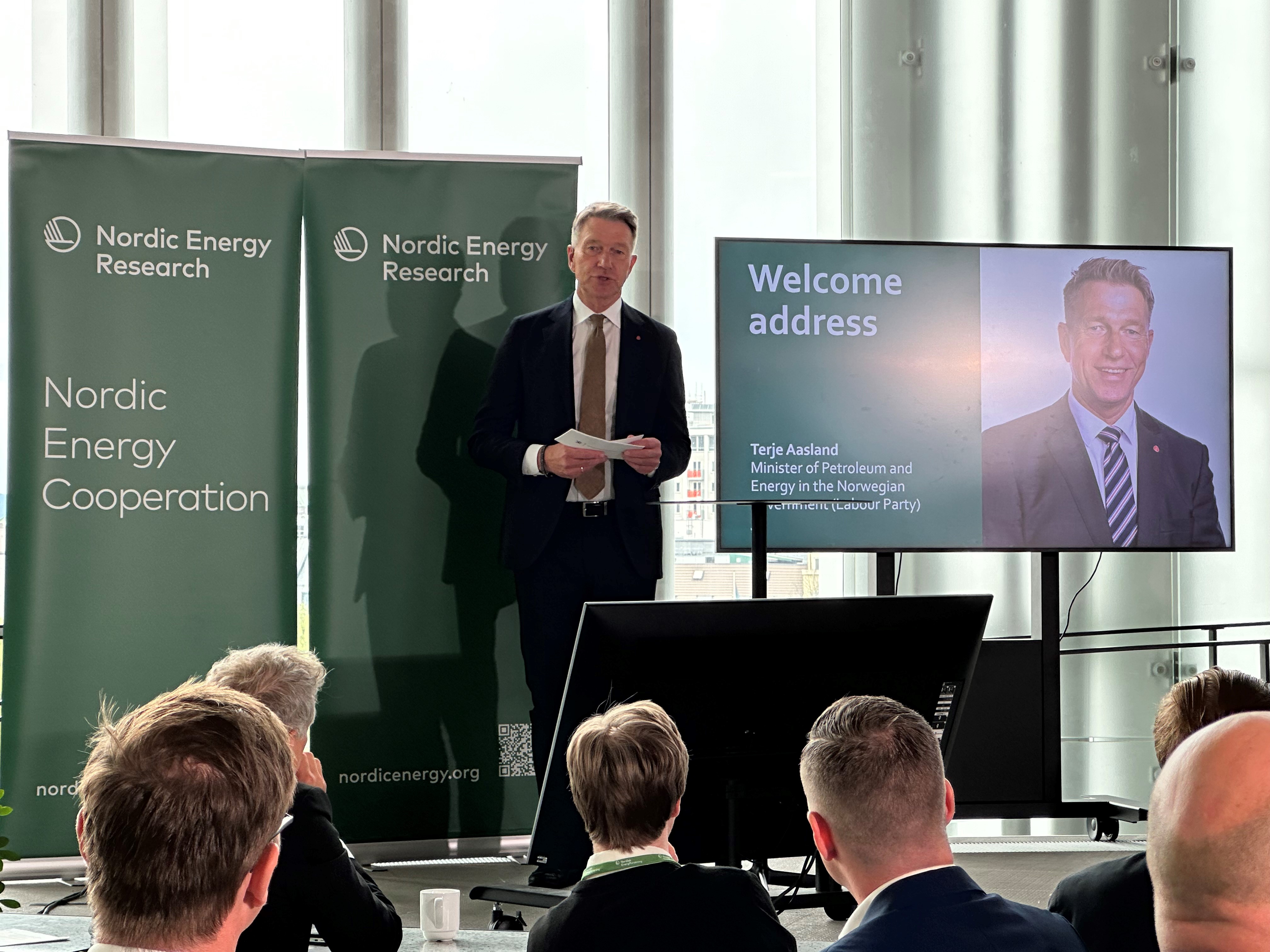
Terje Aasland, minister of Energy and Petroleum, Norwegian government.
Opening the forum, the Norwegian Minister of Energy and Petroleum, Terje Aasland (the Labour Party), emphasised the Nordics unique position globally: “The Nordic countries have a head start; we mostly have fossil-free systems and a long history of working together.”
He also highlighted how Nordic cooperation on energy is a key to success: “To succeed, we must work together. We must build stronger grids. We must respect that different countries have different energy systems and priorities. This has been an advantage of the Nordics.”
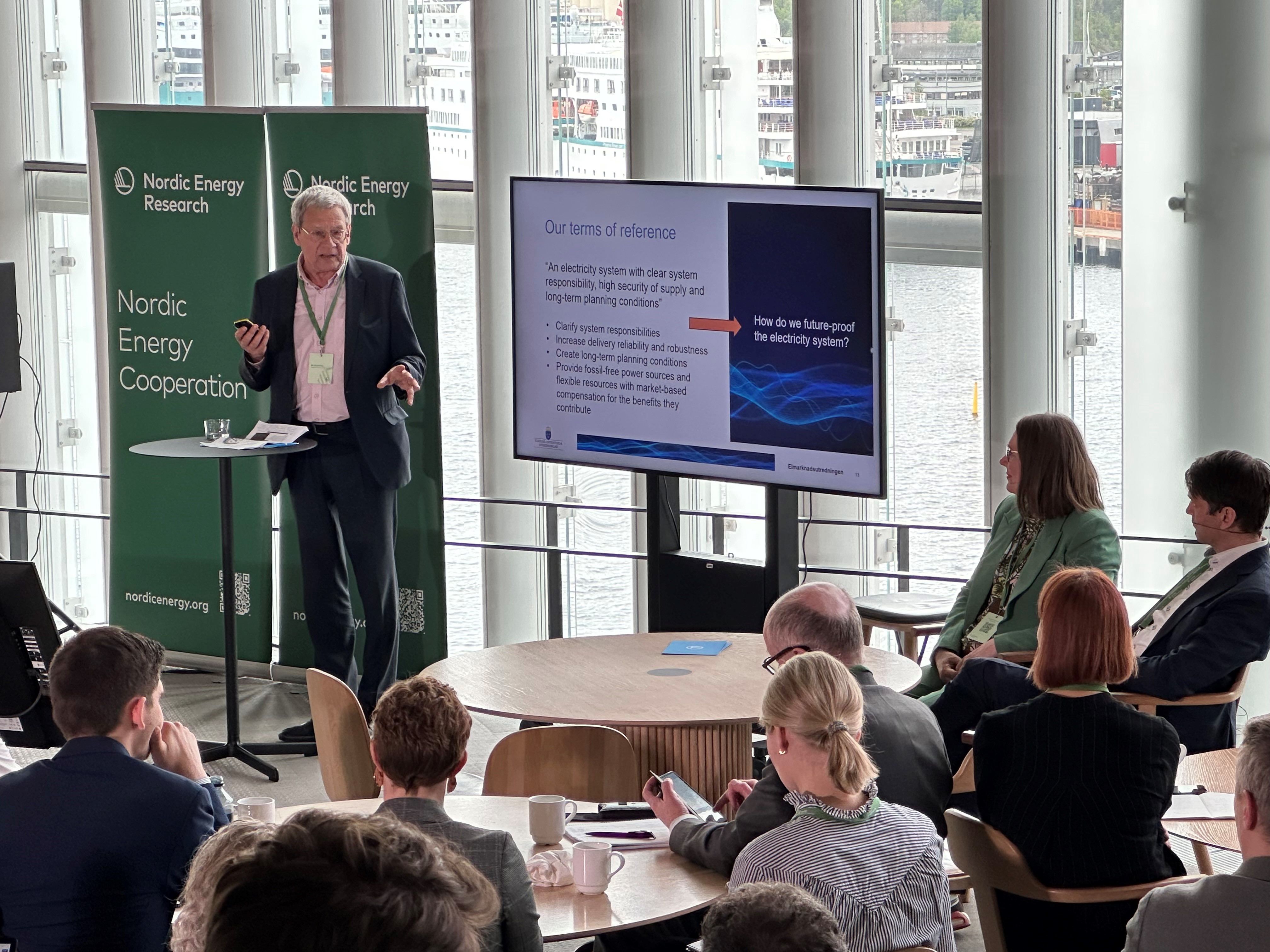
Bo Diczfalusy, special investigator, the Swedish Electricity Market Inquiry.
Keynote speaker Bo Diczfalusy, Special Investigator of the Swedish Electricity Market Inquiry, presented the inquiry’s key findings and their implications for Sweden and the wider Nordic region. Aiming to future-proof the Swedish electricity system, the inquiry proposes several reforms, including the introduction of Contracts for Difference (CfDs), the development of system services (e.g., remuneration for inertia), and the extension of price area contracts (EPADs). It also includes proposals to clarify responsibilities and requirements for joint planning.
Focus on the EU and the Draghi report’s implications for Nordic competitiveness
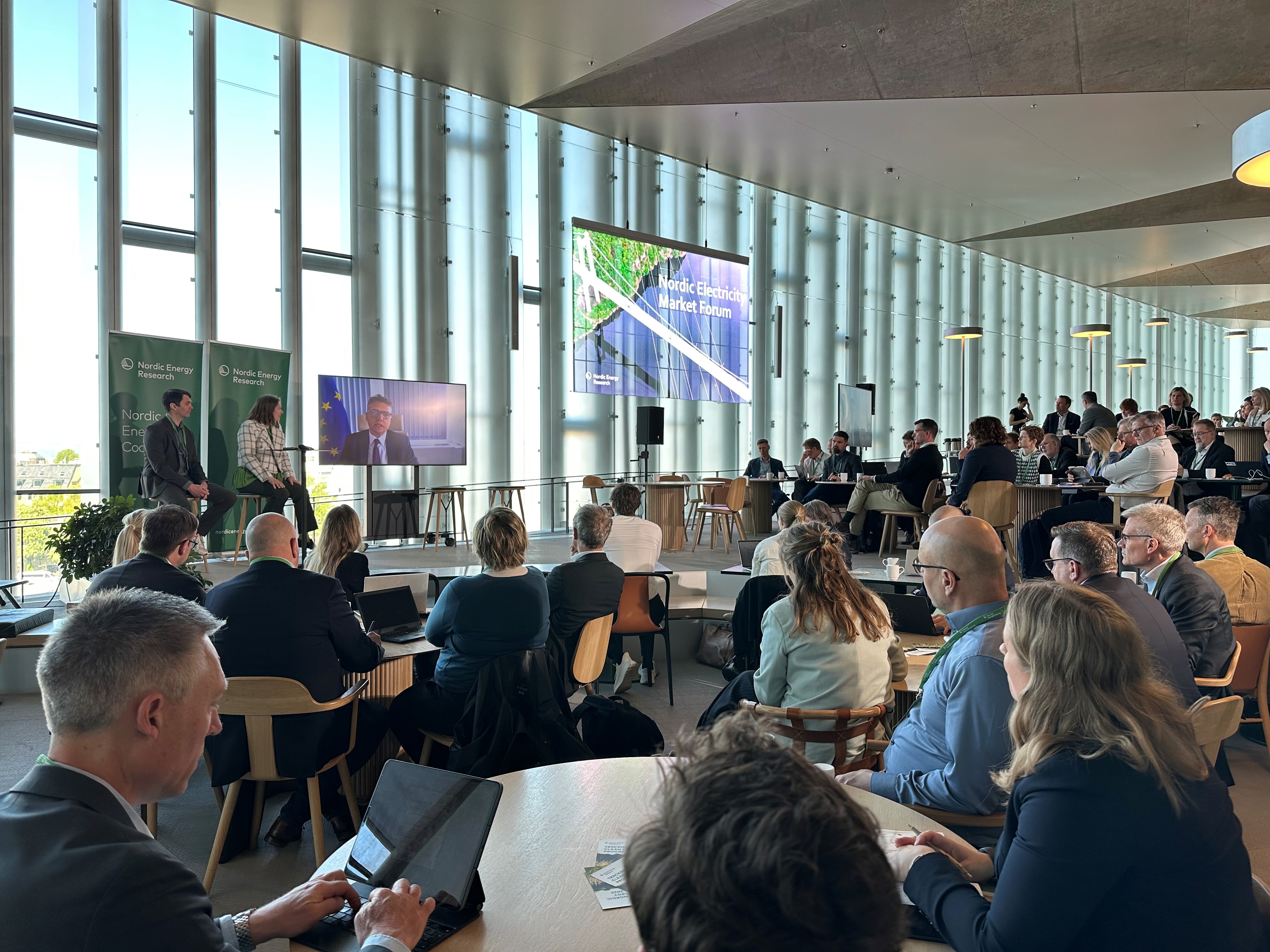
Lukasz Kolinski, Director for Green Transition and Energy System Integration at the Directorate-General for Energy, European Commission.
Day two of the forum started with a keynote address from Lukasz Kolinski, Director for Green Transition and Energy System Integration at the Directorate-General for Energy, European Commission. In his speech, Kolinski emphasised the need to establish a more flexible and stable energy system in the EU. He also highlighted the directives that the EU has adopted in the last years to develop the market and adapt the power markets to a new reality. “It’s obvious that we need much more flexible solutions both on the supply and the demand side,” he said.
The last part of the forum was a sharing session where all groups presented their concrete suggestions for how the proposals of the Draghi report can affect the Nordic region, focusing on how the implementation can be shaped in order to increase Nordic competitiveness. The suggestions will now be compiled and shared with the Nordic Ministries and the Nordic Directors Meeting.
Watch all videos
Pictures from the event
About the Nordic Electricity Market Forum
The purpose of the Nordic Electricity Market Forum, which has been held annually since 2018, is threefold: to build and strengthen a common understanding, to find a shared Nordic voice, and to communicate the Nordic perspective to authorities and Europe. Nordic Energy Research is the secretariat for the working group Nordic Electricity Market Group and responsible for holding the forum. The next forum will be held in 2026.

